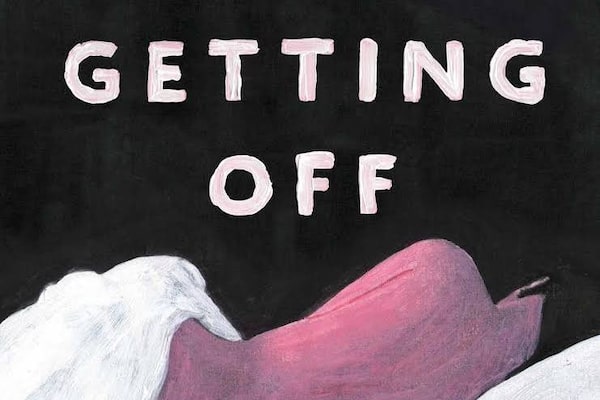
Erica Garza was 30 when she saw Steve McQueen's addiction drama Shame and, in Michael Fassbender's insatiable protagonist, saw herself.
Since at least adolescence, she'd been dually consumed by an obsessive interest in sex and corrosive feelings of shame. Those feelings of isolation and inadequacy led Garza down a path of dispiriting one-night stands, broken relationships and long internet pornography binges she felt powerless to stop.
In her new memoir, Getting Off, the Los Angeles-based essayist traces the roots of her feelings and documents how a combination of therapy, 12-step group treatments, a retreat called the Hoffman Process, her husband and life in Southeast Asia helped her reassert control over her life.
What did you learn about yourself writing this?
I learned that it's empowering to reveal our darkest secrets. I often kept my darkest secrets to myself because I felt if other people would find out, they would reject me or stay away. But when I revealed them, not only was I able to understand and be more compassionate with myself, but I also felt more connected to other people. That was really surprising to me.
Whose memoir do you admire most?
I devour memoirs like crazy. Related to this topic, I really enjoyed Loose Girl by Kerry Cohen and The Wild Oats Project by Robin Rinaldi. Those books deal with women and sexuality in really complex and interesting ways.
At the nadir of your addiction, what was your behaviour like?
It's difficult to point to any one low point because I feel like there were so many of them. I know throughout my 20s, I was very unhappy and I felt very stuck. I knew that I had a problem with sex for a really long time, but I didn't know how to deal with it and I think that's the case for a lot of sex addicts – especially women. I felt very disconnected from people and lonely for a long time. I spent a lot of time alone, consumed by my thoughts, and obsessed with sex and when I'd have it next and what clip I'd watch next. It became the main priority and driving force in my life so I didn't have time or energy for anything else. I sabotaged a lot of relationships – and relationships I really valued.
Do you worry about how anyone in particular in your life would react to the book?
I did worry from time to time about my parents reading the book. They knew I was writing on this topic, but I worried they might think that they hadn't done a good job raising me; that maybe I was going to place blame on them. I was really, really trying to be as fair as possible to them.
So, what was their feedback?
They were really supportive. I think their reaction was so much better than I thought it was going to be. I think they believe that writing this book was a big part of my healing journey. And they haven't read the whole book. They've only read bits and pieces, which is fine. I'm not offended by that. I'm not sure I'd want to read details about them in that way.
Do you still think it's possible to have a healthy relationship with internet pornography?
I do. I'm at a point in my life where I do watch porn from time to time. And when I first started my recovery, I thought I'd have to cut out porn entirely. I thought I couldn't do things like have a threesome or experiment in any way that isn't in the traditional monogamous relationship. But I wanted to be a fluid, open-minded and experimental sexual person, and cutting that off would be really inauthentic to me. So I realized it was much less about stopping porn and stopping experimentation, and much more about doing those things and feeling okay about it, and getting rid of my shame.
As you spent less time watching porn, did you take up any new hobbies?
I had a daughter – she's 19 months old – so most of my time is occupied with playgrounds and Moana. In the early stages of my recovery, I also started doing a lot of yoga and meditating a lot more. I was also doing Muay Thai because I was living in Thailand at the time. That was an interesting way to use my body in a productive way.